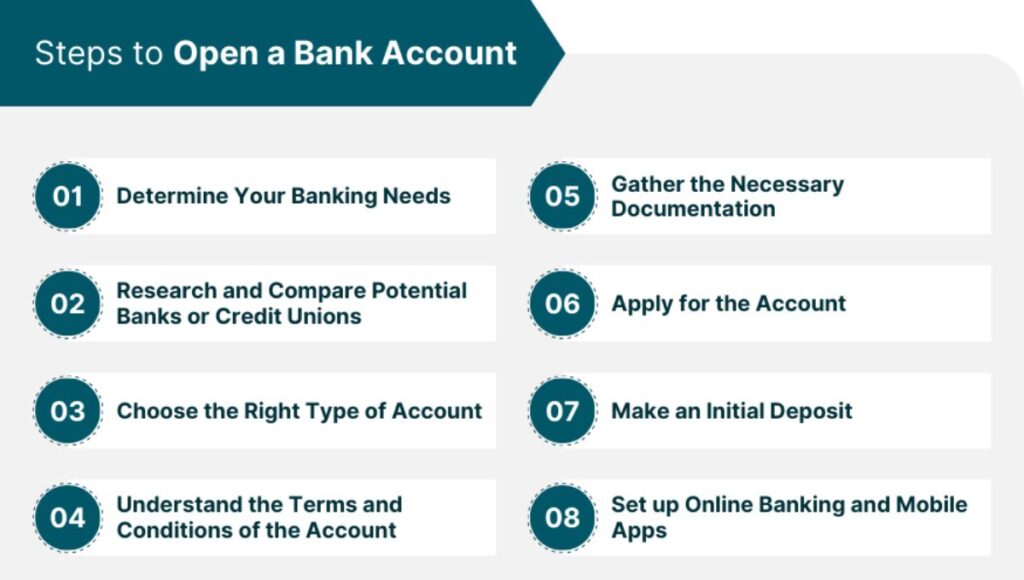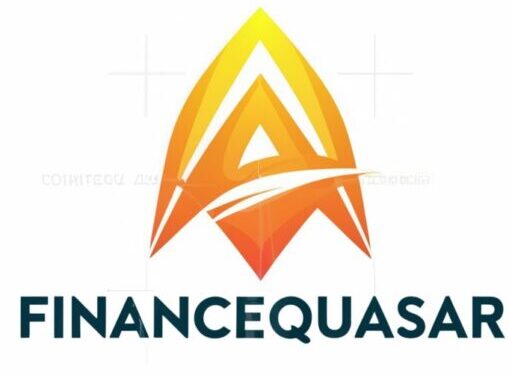Tired of dealing with sneaky fees and impersonal service from your bank? Maybe it’s time to consider launching your own financial instituti on – and calling all the shots.
Starting a bank from scratch might sound far-fetched, but it’s 100% doable if you’ve got the right gameplan and unwavering hustle. No longer just for industry vets, tech-savvy entrepreneurs are shaking up the banking scene with innovative online models.
I’m pulling back the curtain on exactly what it takes to start your own bank. From initial planning and raising capital to navigating regulations and marketing to customers, this guide has you covered. The path ain’t easy, but the payoff could be massive for fearless self-starters ready to blaze a new trail.
Why Should You Start A Bank?
Let’s kick things off by addressing the burning question – why even start a bank in the first place? For starters, the U.S. is the only industrialized nation that allows citizens to start financial institutions from the ground up. Pretty cool, right?
In the past, starting a bank meant setting up brick-and-mortar branches. But these days, the rise of financial technology (aka fintech) has paved the way for 100% online banks like Chime and Varo. No more dealing with annoying fees or visiting physical locations!
This fintech revolution has sparked a wave of tech-savvy entrepreneurs launching digital banks. And you could be one of them! Whether you want to serve an underserved community or have expertise in a specific lending niche, the opportunities are endless.
How To Start A Bank: Step By Step

Buckle your seatbelts, folks. Starting a bank is a lengthy process that can take over a year. But don’t sweat it – I’ve got your back with this step-by-step guide.
1. Create A Business Plan
First thing’s first – you need a rock-solid business plan. This bad boy needs to cover everything from your proposed services and target market to financial projections and growth strategies.
Crafting a killer business plan is crucial for nabbing those all-important regulatory approvals and investor capital down the line. It’s your roadmap to success, so don’t skimp on the details!
Your business plan should include:
- Mission, vision, and objectives
- Company overview (legal structure, history, location)
- Products and services (current and planned)
- Industry analysis (market size, competition, regulations)
- Target market and customer segments
- SWOT analysis (strengths, weaknesses, opportunities, threats)
- Marketing and sales strategy
- Management team and advisors (this is huge for investors)
- Operations plan (staffing, processes, equipment)
- Financial projections and funding requirements
- Implementation timeline
Don’t have time to craft a business plan from scratch? No worries! The experts at Inc Authority can handle the heavy lifting – just click here.
2. Form A Board Of Directors
Once your business plan is locked and loaded, it’s time to assemble your star team: the board of directors. These bigwigs will oversee management and help steer the ship.
Regulators want to see a board filled with badass bankers and entrepreneurs who have proven track records of success. A mix of business, banking, and other backgrounds is ideal.
Don’t underestimate the importance of your board. Their commitment (including financial investment) is a crucial signal for regulators and investors.
3. Apply To The Government Regulators
Here’s where things get official: applying for regulatory approvals. Most bank founders opt to apply for a state charter first via the state banking agency.
But you’ll also need to get cozy with federal regulators like the Office of the Comptroller of the Currency (OCC) for your federal charter. Oh, and you can’t forget about FDIC insurance. It’s a whole bureaucratic rodeo!
4. Apply For A Bank Charter
Applying for that all-important bank charter is where the rubber meets the road. You’ll need to compile tons of documentation on your organizers, business plan, management team, financials, and more.
The chartering regulators (state or federal) will scrutinize every nitty-gritty detail to ensure your bank has a legit chance of safe, sound operations and success.
If you clear that hurdle, it’s on to the FDIC for that sweet deposit insurance approval. The Fed may also need to weigh in if you plan on joining their membership or operating under a holding company structure.
5. Raising Capital
Folks, this is the big one: raising enough startup capital to actually open your bank’s doors. We’re talking $15-25 million minimum to satisfy those regulatory capital requirements.
Your business plan better be air-tight, because convincing investors to fork over that kind of cash won’t be easy. But banks are considered pretty safe investments, so there’s upside potential if you can cross the finish line.
6. Form A Legal Entity (Using Inc Authority)
With your concept validated and capital locked in, it’s time to make things official by forming a legal business entity. This step protects your assets and unlocks all sorts of tax benefits.
You’ve got two main options: the good ol’ limited liability company (LLC) or a corporation. Let’s break ’em down:
An LLC is a simple, flexible structure that limits your personal liability for any business debts or lawsuits. It combines the liability protections of a corporation with the tax benefits of a partnership.
LLCs are perfect for small business owners – you get that coveted legal separation without dealing with all the formalities of a corporation.
Corporations are the gold standard for liability protection, keeping your personal assets completely separate from the business.
You can incorporate as either an S-corp or C-corp. S-corps are pass-through entities (avoiding double taxation), while C-corps technically pay their own tax rates. The right choice depends on your specific goals and situation.
No matter which way you go, the legends at Inc Authority have your back with seamless LLC and corporation formation services. Their LLC package is even completely free!
7. Obtaining A Banking License
With your legal ducks in a row, it’s time to apply for that all-important banking license or charter. The requirements vary by location, but you’ll generally need:
- At least two partners with squeaky-clean backgrounds
- A stacked senior management team with 10-20+ years of banking experience
- Designated compliance and risk officers
- An established physical location or office
- Experienced managers and directors (think MBA-level credentials)
- Comprehensive background checks on all stakeholders
- An initial business plan and funding
- Banking software and reporting systems
Again, Inc Authority can streamline this process and ensure all your licensing ducks are in a row.
Wait, There’s More! Bonus Tips For Starting A Successful Bank

Thought we were done? Think again! I’ve got some bonus tips to ensure your new bank is an unbankable success:
Build An All-Star Team
Your people are everything, especially in the ultra-competitive banking world. Surround yourself with all-stars who bring deep financial expertise and a proven track record of growth.
When putting together your C-suite and senior leadership, look for talent with specialized skills in areas like compliance, risk management, technology, and operations. A diverse mix of perspectives is key.
Stay Ahead Of Regulations
Regulations are tighter than ever in the banking game. Stay one step ahead by investing in robust compliance programs and reporting capabilities from day one.
Partner with legal and risk management consultants who can ensure your policies, procedures, and day-to-day operations align with all rules across the federal, state, and local levels. An ounce of prevention is worth a pound of cure!
Leverage Cutting-Edge Banking Tech
Technology is disrupting (and improving) banking in major ways. If you want to keep up with the likes of Chime and Varo, you’d better hop on the fintech train.
Prioritize online banking platforms, AI-backed lending decisioning, robust cybersecurity, and other innovations that create killer customer experiences. The more high-tech, the better in today’s digital-first world.
Don’t Skimp On Marketing
With so much competition in the market, marketing is non-negotiable for new banks. You need a comprehensive digital strategy to get on people’s radars and differentiate your brand.
That means a top-notch website, SEO content marketing, social media promotions, Google Ads, email nurture campaigns…the whole nine yards. Work with marketing pros who understand the unique nuances of promoting financial services online.
Also Read This Post
8. Choose A Location And Market Your Business
Speaking of marketing…once you’ve checked all the regulatory boxes and built your operations, it’s time to get those customers rolling in the door! Your location and local marketing approach matters big time.
In today’s digital age, your website is your virtual home base and storefront rolled into one. Make sure it’s a well-designed, SEO-optimized masterpiece that sells your unique banking value prop.
Social channels like Facebook, Instagram, Twitter, and LinkedIn are prime hunting grounds for reaching and engaging prospective banking customers. A savvy organic and paid social strategy is a must.
Paid search ads on Google are a powerful way to get in front of motivated prospects actively searching for banking services online. With the right targeting and messaging, Google Ads can be a lead generation machine.
Content Marketing
Creating authoritative, educational content (like blog posts and videos) is a stellar way to build trust, capture organic search traffic, and nurture leads over time. Invest in a consistent content marketing strategy.
Email Marketing
While often overlooked these days, email remains an effective channel for nurturing customer relationships and promoting services/offers. Smart email marketing allows you to segment lists and measure what’s working.
Prioritize Customer Experience
At the end of the day, providing an unbeatable customer experience is what will make or break your new bank in today’s hyper-competitive landscape.
Make experience a top priority across every team and touchpoint – from streamlined digital banking and fast loan approvals to friendly branch staff and personalized communication. Customer-centric companies win every time!
The Finish Line
Whew, starting a bank is no joke! It requires detailed planning, serious capital, regulatory stamina, and a solid team behind you. But for the right entrepreneurs, it can be an extremely rewarding venture.
By following the steps and tips outlined here, you’ll be well on your way to founding your own thriving financial institution. Stay focused, listen to your customers, and never stop innovating.
The world of banking is evolving rapidly – don’t get left behind. Now’s the time to take the plunge and launch that business you’ve been dreaming about.
Conclusion
Thinking of starting your own bank? It’s no cake walk, but totally doable if you’ve got the right gameplan. First, craft a killer business plan and assemble a board of badass banking pros. Next, run the regulatory gauntlet to score all those crucial approvals and licenses. Don’t skimp on capitalization – you’ll need at least $15-25 million to get off the ground.
Once legit, focus on building an A-team, leveraging cutting-edge tech, and promoting the heck out of your new venture through digital marketing channels. Prioritize mind-blowing customer experience above all else. It’s a long road, but vilding your own bank offers serious payoff for fearless, savvy entrepreneurs willing to go the distance.
FAQ’s
How Much Does It Cost To Start A Local Bank?
Starting a local bank typically requires raising $15-25 million in initial capital to satisfy regulatory requirements.
Is Owning A Bank Profitable?
Yes, owning a bank can be very profitable if operated efficiently and compliance costs are managed properly.
How Much Does It Cost To Start A Bank In Pakistan?
Requirements vary, but estimates suggest at least $10-15 million is needed to start a bank in Pakistan.
What Is The Minimum Amount To Open A Bank?
There is no set minimum, but regulators expect new banks to have enough capital to handle risks/losses, typically $15 million+.
How Much Money Does It Take To Create A Bank?
Creating a new bank from the ground up requires raising a minimum of $15-25 million in startup capital on average.
Meet James John, the luminary mind behind FinanceQuasar. With a passion for demystifying finance, James is a seasoned expert dedicated to simplifying complex concepts. His insightful articles illuminate the financial cosmos, guiding readers towards prosperity. Join James on this enlightening journey, as he shares his wealth of knowledge and expertise.







